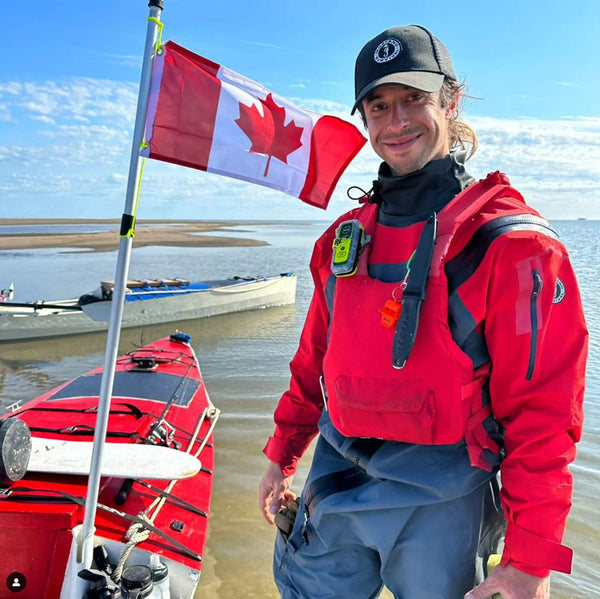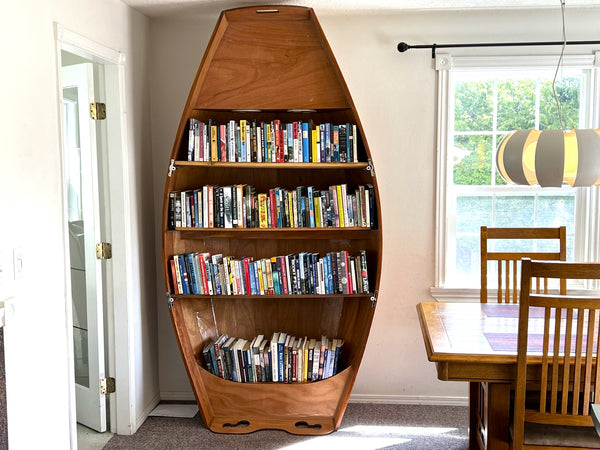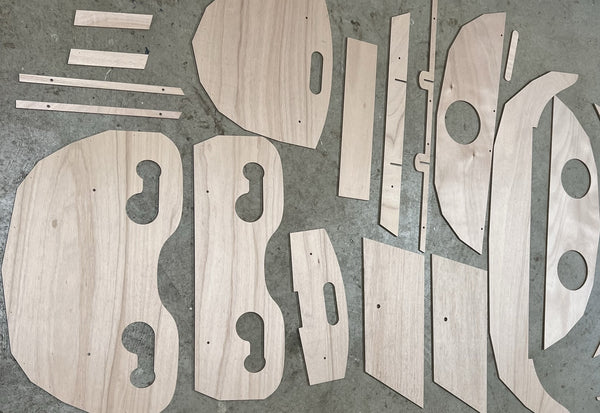A Speed Comparison of Kayaks, Rowboats, Canoes, SUPS and Pedal boats
I’m often asked what is the fastest type of human powered boat. How do surf skis, SUPs (stand up paddleboards), etc. hold up against one another? I’ve decided to take the time to rank and compare the various modes of human powered aquatic propulsion. Direct comparisons between craft are hard to come by, and relative performance can vary significantly depending on weather/water conditions. We’ve compiled our analysis by comparing data from Olympic results, open water human powered boat races, and major records that have been broken.
1) Pedal Power
 Pedal power has proven itself to be fastest for short and long distances on flat water. The world record for the fastest 100 meter sprint is held by the Decavitator averaging 18.5 knots. Decavitotor uses hydrofoils and is powered with a pedal system driving an air propeller. The 24 hour flatwater distance record is held by Greg Kolodziejzyk who voyaged 245 km in a day using a lightweight carbon fiber trimaran propelled with a submerged propeller. While the major aquatic records are held by pedal-powered craft, typical commercial pedal powered boats are much slower. The Hobie drive system, for example, sacrifices significant performance in exchange for durability and function. In most open water races pedal powered boats generally fare relatively poorly compared to surf skis and rowing shells due to the abundance of mediocre-performance pedal boats.
Pedal power has proven itself to be fastest for short and long distances on flat water. The world record for the fastest 100 meter sprint is held by the Decavitator averaging 18.5 knots. Decavitotor uses hydrofoils and is powered with a pedal system driving an air propeller. The 24 hour flatwater distance record is held by Greg Kolodziejzyk who voyaged 245 km in a day using a lightweight carbon fiber trimaran propelled with a submerged propeller. While the major aquatic records are held by pedal-powered craft, typical commercial pedal powered boats are much slower. The Hobie drive system, for example, sacrifices significant performance in exchange for durability and function. In most open water races pedal powered boats generally fare relatively poorly compared to surf skis and rowing shells due to the abundance of mediocre-performance pedal boats.
2)Rowing
 When comparing the top Olympic speeds of rowing, kayaking and canoeing, rowing comes out on top. Olympic events are all short distance, however, when looking at the results of longer distance mixed boat races sliding seat rowing boats still perform slightly better than other fast paddle craft in calm conditions.
When comparing the top Olympic speeds of rowing, kayaking and canoeing, rowing comes out on top. Olympic events are all short distance, however, when looking at the results of longer distance mixed boat races sliding seat rowing boats still perform slightly better than other fast paddle craft in calm conditions.
3) Racing Kayaks/Surf Skis
 The double blade paddle offers excellent performance, and speed is only slightly slower than sculling (sliding seat rowing) when using high performance craft. When conditions get rougher, kayaks and surf skis will outperform a rowing shell. High performance kayaks and surf skis are almost identical in speed, while recreational sea kayaks are much slower.
The double blade paddle offers excellent performance, and speed is only slightly slower than sculling (sliding seat rowing) when using high performance craft. When conditions get rougher, kayaks and surf skis will outperform a rowing shell. High performance kayaks and surf skis are almost identical in speed, while recreational sea kayaks are much slower.
4) Canoes
 The single blade paddle is less efficient than the double blade, and the fastest racing canoes (including the OC-1) are slower than performance kayaks.
The single blade paddle is less efficient than the double blade, and the fastest racing canoes (including the OC-1) are slower than performance kayaks.
5) SUPs
 Stand up paddleboards are the slowest of the conventional human-powered craft. A board shaped for performance is still hindered by the greater inefficiencies of a single blade paddle. Additionally, the full standing profile of a human presents less-than-ideal aerodynamics. An examination of the 2015 results from the 20 races (open to all human powered boats) hosted by Puget Sound Rowers, shows SUPs consistently trailing the pack.
Stand up paddleboards are the slowest of the conventional human-powered craft. A board shaped for performance is still hindered by the greater inefficiencies of a single blade paddle. Additionally, the full standing profile of a human presents less-than-ideal aerodynamics. An examination of the 2015 results from the 20 races (open to all human powered boats) hosted by Puget Sound Rowers, shows SUPs consistently trailing the pack.
7 Responses
David Hagadorn
It troubles me that when paddleboard craft are criticized for performance when no one examines the skimming value of a flat floating platform that disburses very little water from its path. These craft do not have to be used standing up. The propulsion system is the problem. Propel the craft from closer to the water as you might a kayak and experience something very surprising.
Bryan Hersman
I had come here hoping to see the top speeds listed for each craft. Also what about multiple crew vs a single occupant?
Ronald C Wagner
How do the rental type two person pedal boats fare over distance? They are much more affordable and stable in most conditions.
Phill
Good overview. I’m currently researching for the best kayak to buy as I had great fun whilst on holiday in the south of france. However, i’m still a beginner and don’t want anything too advanced.
I read this guide about the best kayak for beginnersbut do you recommend any that are not in this article?
Thanks in advance!
Tom
Jai, have a look at these links. Davey du Plessis’ boat is enclosed and pedal powered. https://youtu.be/Wvu1nP7mFrY. Jason Lewis used a similar setup. https://youtu.be/n7EbQ_mRSjg. Makes sense to me if you want to go the human-power route.
Grau
I think you are forgetteing the Flyak, made by Einar Rasmussen, aiming for the world record on the 2k race.
Please check this out
https://www.youtube.com/watch?v=U95UReP4mdo
Jai Chavan
This is a lovely article.
I have begun my research just recently to circumnavigate the globe with my autistic son, 17, whose feet and hand muscles are still not well developed. Therefore I am presently toying with the idea of rowing, paddling and pedalling, to propell a small boat.
Leave a comment
Comments will be approved before showing up.
Also in News

Human Powered Achievements through the Northwest Passage
At Angus Rowboats, our passion for adventure naturally draws us to the mystique of the Northwest Passage – one of the world's most captivating and perilous waterways. Historically, this elusive passage promised a shorter shipping route, spurring early navigators to fervently chart and struggle through its icy intricacies.
The summer of 2023 saw three audacious teams, including one using our very own RowCruiser boats, aiming to be the first to traverse NW Passage solely by human power within a single season. As the season concludes, we've chronicled these attempts, and catalogued past human-powered endeavors to navigate the Northwest Passage.

Creating a Bookcase from a Boat


Colin Angus
Author